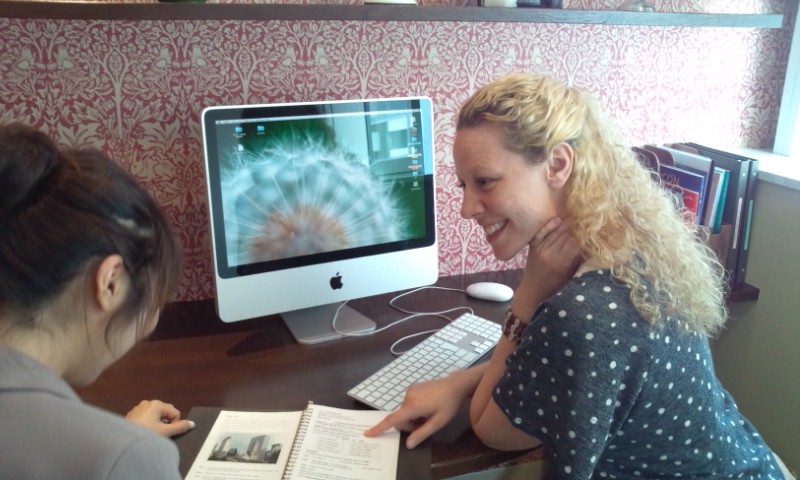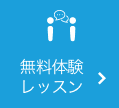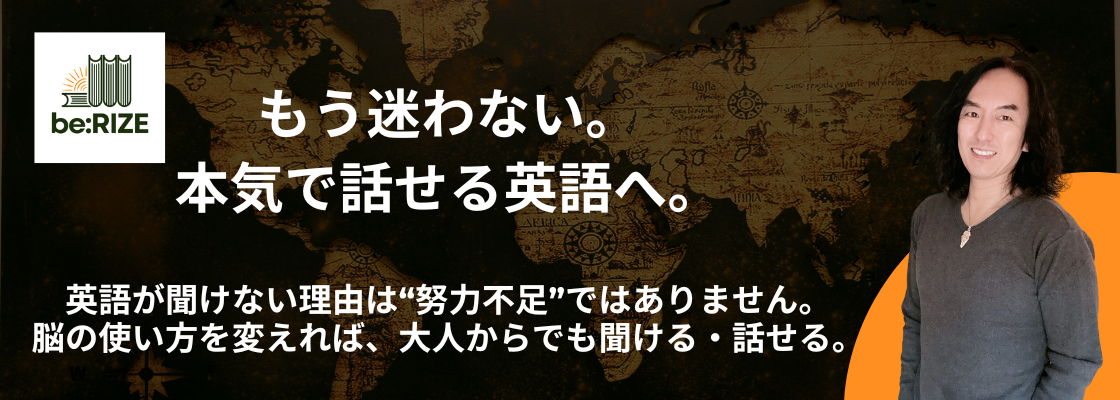Today I want to write a short blog about casual “real life” greetings in English.
Although we’ve practiced greetings such as: “Hello, it’s nice to meet you” and “It’s a pleasure to meet you” many times, there are still a number of casual phrases that many English speakers use when greeting each other.
今日は英語でカジュアルな言い方としての「実生活での」挨拶に関するブログを書こうかな。
皆さんが挨拶として何度も使ってきたであろう
「Hello, it’s nice to meet you(こんにちは、はじめまして)」とか「It’s a pleasure to meet you(あなたに会えて嬉しい)」
などという言葉は、今でも多くの英語を話す人が挨拶として使っているますね。
There are two main types of greeting questions that we often ask each other – “How” questions and “” questions.
よく、挨拶のときにお互いに尋ね合う内容に、大きく分けて2つの種類―「How(どう?)」「What(何?)」がありますね。
“How” questions generally ask about the other person’s feeling or condition:
Here are some common “How” question greetings:
「How(どう?)」という質問は、通常相手の気持ちや状態を尋ねる時に使います。
ここに、「How(どう?)」を使った挨拶のいくつかの例を挙げてみましょう。
・How’s it going?
・How are you doing?
・How are you?
・How’s everything?
・How’s life?
You can answer these questions by saying things like:
こう聞かれた時にはこんな風に答えますよね。
How’s it going? —> Good(いいよ!)
How are you doing? —> I’m doing fine, thank you. (うまくやってるよ、ありがとう!)
How are you? —> Pretty good(すごく元気だよ)
How’s everything? —> Not too bad(そう悪くないよ)
How’s life? —> Great! (最高だよ!)
“What” questions generally ask about news or information:
Here are some common “What” question greetings:
「What(何?)」という質問は、最近の様子や情報を聞きたい時に使います。
続いて、「What(どう?)」を使った挨拶のいくつかの例を挙げてみましょう。
What are you up to?
What have you been up to lately?
What’s up?
What’s new?
What’s going on?
What’s happening?
You can answer these questions by saying things like:
こう聞かれた時にはこんな風に答えますよね。
What are you up to? —> Well, today I am shopping for a present for my mother.
(ええと、今日は母へのプレゼントを買いに行くよ)
What have you been up to lately? —> Oh, just working.(んー、ただ、仕事をしてるよ)
What’s up? —> Not much, you? (何にもないよ、君は?)
What’s new? —> I just joined an English conversation school!(英会話学校に通い始めたよ)
What’s going on? —> I just finished work and now I’m going to my yoga class.(ちょうど仕事が終わってこれからヨガスクールに行くよ)
What’s happening? —> Not much, I’m on my way to the supermarket. How about you?
(何も変わらないよ。スーパーマーケットに行くところだよ。君は?)
Often times, however, when we ask “What” style greetings we answer that nothing is going on or nothing is new in our life when we are in a hurry. (I know it sounds funny, right!)
私たちが生活の中で何もニュースがないときや、何も変化が無い時急いでいるときにも関わらず「What」という質問がなされます。(正しい使い方ですが、何だか変な気もしますよね!)
For example, if you are a student and you are walking down the hallway going to class and your friend passes you in the hallway, he or she might say, “what’s up?”.
At this time, it would be natural to say, “Not much, you?”, because you are walking to class and you don’t have time to stand in the hallway and talk to your friend about your life.
例えば、あなたが学生で、授業に行く玄関を歩いている時に友達とすれ違ったら「What’s up?」と言われたとしましょう。
その場合、「特に変わらないよ!そっちはどう?」と返す言うことは自然でしょう。何故ならあなたは教室に向かっているところであり、あなたの最近の様子について友達に話す時間はないですしね。
So, many times, even though the question is asking for news or information, we don’t say very much, because it’s more implied as a way of saying “hello” rather than really asking for more information.
Therefore, answers such as these, would be fine.
つまり、いくらその質問が何度もあったり一見あなたについてのニュースや情報を求めているようでも、それは実際には詳しい説明を求めているという意味ではなく、「こんにちは」という意味に捉えることが良いでしょう。
したがって、これらのような答え方をするといいですよ!
> Not much
> Nothing much
> Same old, same old (this means nothing has changed in your life)
(特に変わりないよ!)
One exception, though, is when we do have a lot of time, such as when your lesson partner asks you “What’s new?” during your lesson.
In this situation we are sitting down in a relaxed environment and we have a lot of time to talk.
And as lesson partners, we genuinely are interested.
Therefore, it would be appropriate to go more into detail about what’s happening in your life.
でも例外はありますよ。レッスン中にレッスン・パートナーがあなたに「What’s new?」と聞いたときです。
この時ばかりは私たちには、ゆったりと座った状態で、しかも話す時間がたくさんありますよね。
また、レッスン・パートナーは皆さんにとっても興味を持っています。
つまり、皆さんの最近の様子を詳しく聞きたいのです。

One last point is how these phrases sound when spoken at a high speed.
そして最後の1つのポイントは、速いスピードで話された時、これらがどんな風に聞こえるかです。
How’s it going? —> sounds like “howzit goin”
How are you doing? —> sounds like “howya doin”
How are you? —> sounds like “how are ya”
What are you up to? —> sounds like “what are ya up to”
What’s up? —> sounds like “wassup” or “sup”
What’s going on? —> “what’s goin on”
What’s happening? —> “what’s hap’nin”
I hope this clears up any confusion that you may have about casual style greetings and I hope you will find it helpful the next time you see your friend.
今回のブログが、皆さんの、挨拶について普段混乱していることをスッキリ整理できる手助けになると良いな、と感じます。そして、皆さんが次にお友達と会うときに、今回のブログが役に立つことを願っています。
See ya!
それではまた!
Jackie
















